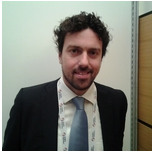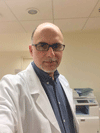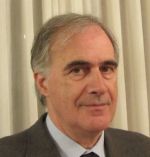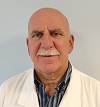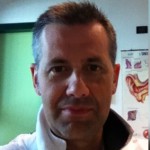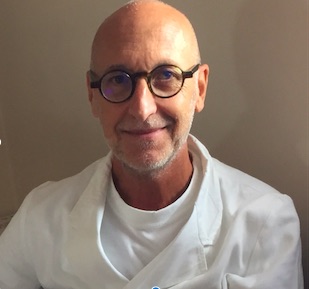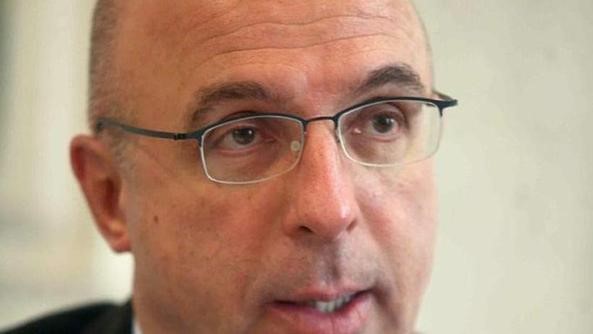Studying at the University of Verona
Here you can find information on the organisational aspects of the Programme, lecture timetables, learning activities and useful contact details for your time at the University, from enrolment to graduation.
Academic calendar
The academic calendar shows the deadlines and scheduled events that are relevant to students, teaching and technical-administrative staff of the University. Public holidays and University closures are also indicated. The academic year normally begins on 1 October each year and ends on 30 September of the following year.
Course calendar
The Academic Calendar sets out the degree programme lecture and exam timetables, as well as the relevant university closure dates..
| Period | From | To |
|---|---|---|
| LOGO 1A1S | Oct 1, 2019 | Nov 22, 2019 |
| LOGO 2A1S | Oct 7, 2019 | Nov 22, 2019 |
| LOGO 3A1S | Oct 7, 2019 | Nov 22, 2019 |
| LOGO 1A2S | Jan 7, 2020 | Feb 28, 2020 |
| LOGO 3A2S | Jan 7, 2020 | Feb 28, 2020 |
| LOGO 2A2S | Jan 7, 2020 | Feb 28, 2020 |
| Session | From | To |
|---|---|---|
| LOGO SESSIONE INVERNALE | Dec 2, 2019 | Dec 23, 2019 |
| LOGO SESSIONE ESTIVA | Jul 1, 2020 | Jul 31, 2020 |
| LOGO SESSIONE AUTUNNALE | Sep 1, 2020 | Sep 30, 2020 |
| Session | From | To |
|---|---|---|
| LOGO SESSIONE AUTUNNALE | Nov 1, 2020 | Nov 30, 2020 |
| LOGO SESSIONE PRIMAVERILE | Mar 1, 2021 | Apr 30, 2021 |
| Period | From | To |
|---|---|---|
| FESTIVITA' OGNISSANTI | Nov 1, 2019 | Nov 1, 2019 |
| FESTIVITA' IMMACOLATA CONCEZIONE | Dec 8, 2019 | Dec 8, 2019 |
| VACANZE DI NATALE | Dec 24, 2019 | Jan 6, 2020 |
| VACANZE DI PASQUA | Apr 10, 2020 | Apr 15, 2020 |
| FESTA DELLA LIBERAZIONE | Apr 25, 2020 | Apr 25, 2020 |
| FESTIVITA' DEL LAVORO | May 1, 2020 | May 1, 2020 |
| FESTIVITA' DEL SANTO PATRONO SAN ZENO | May 21, 2020 | May 21, 2020 |
| FESTA DELLA REPUBBLICA | Jun 2, 2020 | Jun 2, 2020 |
| Description | Period | From | To |
|---|---|---|---|
| LOGO 2^ anno - 1^semestre | LOGO 2^ anno - 1^semestre | Mar 2, 2020 | Apr 9, 2020 |
| LOGO 1^ anno - 1^semestre | LOGO 1^ anno - 1^semestre | Mar 2, 2020 | Apr 24, 2020 |
| LOGO 3^ anno - 1^semestre | LOGO 3^ anno - 1^semestre | Mar 2, 2020 | Apr 9, 2020 |
| LOGO3^ anno - 2^semestre (1 periodo) | LOGO 3^ anno - 2^semestre (1 periodo) | Apr 15, 2020 | May 22, 2020 |
| LOGO 2^ anno - 2^semestre (1 periodo) | LOGO 2^ anno - 2^semestre (1 periodo) | Apr 15, 2020 | May 22, 2020 |
| LOGO 1^ anno - 2^semestre | LOGO 1^ anno - 2^semestre | Apr 27, 2020 | Jun 19, 2020 |
| LOGO 3^ anno - 2^semestre (2 periodo) | LOGO 3^ anno - 2^semestre (2 periodo) | May 25, 2020 | Jul 10, 2020 |
| LOGO 2^ anno - 2^semestre (2 periodo) | LOGO 2^ anno - 2^semestre (2 periodo) | May 25, 2020 | Jul 10, 2020 |
Exam calendar
Exam dates and rounds are managed by the relevant Medicine Teaching and Student Services Unit.
To view all the exam sessions available, please use the Exam dashboard on ESSE3.
If you forgot your login details or have problems logging in, please contact the relevant IT HelpDesk, or check the login details recovery web page.
Should you have any doubts or questions, please check the Enrollment FAQs
Academic staff
 stefania.brotto@univr.it
stefania.brotto@univr.it
 nicolo.cardobi@univr.it
nicolo.cardobi@univr.it
 sara.isoli@univr.it
sara.isoli@univr.it
 nicola.pelizzari@univr.it
nicola.pelizzari@univr.it
 0458128271
0458128271
 trombetti.bice tiscali.it
trombetti.bice tiscali.it
Study Plan
The Study Plan includes all modules, teaching and learning activities that each student will need to undertake during their time at the University.
Please select your Study Plan based on your enrollment year.
1° Year
| Modules | Credits | TAF | SSD |
|---|
2° Year activated in the A.Y. 2020/2021
| Modules | Credits | TAF | SSD |
|---|
3° Year activated in the A.Y. 2021/2022
| Modules | Credits | TAF | SSD |
|---|
| Modules | Credits | TAF | SSD |
|---|
| Modules | Credits | TAF | SSD |
|---|
| Modules | Credits | TAF | SSD |
|---|
Legend | Type of training activity (TTA)
TAF (Type of Educational Activity) All courses and activities are classified into different types of educational activities, indicated by a letter.
Health promotion, risk prevention and safety (2019/2020)
The teaching is organized as follows:
Learning outcomes
DIAGNOSTIC MODULE FOR IMAGES AND RADIOPROTECTIONS Training objectives: Describe the fundamental principles of radiation protection and its application according to current legislation. Describe the main risks related to the use of radiation in hospital facilities. MODULE OF WORK MEDICINE Training objectives: • The course aims to provide the student with basic knowledge and understanding in terms of prevention, protection and promotion of health and safety in the workplace • The student will acquire, also through examples taken from the field , basic knowledge and understanding of the general principles of occupational medicine, risk assessment, health surveillance, suitability judgment, specific legislation, health education, primary, secondary and tertiary prevention, with reference to different types of occupational risks (for example, chemical, physical, biological, ergonomic, organizational and psychosocial, accident). • Attention will be devoted to providing the student with knowledge and understanding of the prerogatives and roles of the various figures and structures responsible for prevention in the workplace and the awareness that in the speech therapist profession there is the opportunity to exercise forms of care on assisted persons health education also on the issues of health and safety in the workplace. MODULE EPIDEMIOLOGICAL METHODOLOGY AND GENERAL HYGIENE Training objectives: The course leads the student to the understanding of health determinants, risk factors, individual and collective prevention strategies and interventions aimed at promoting the safety of health workers and users. It is also proposed to understand the causes, the pathogenetic mechanisms, the methods of prevention and control of diseases from infection. CLINICAL MICROBIOLOGY MODULE Educational objectives: The aim of the course is to provide students with the basic knowledge related to general and clinical microbiology. The general characteristics of the various microorganisms and the mechanisms involved in their ability to cause infection and disease in humans are treated with various examples of infections and diseases of bacterial and viral etiology and hints to the methods of evaluation and diagnosis of these diseases. FIRST AID PRINCIPLES AND TECHNIQUES MODULE Training objectives: The student at the end of the lessons must be able to: * recognize the main rescue teams * activate the early rescue chain * provide the first necessary care in safety
Bibliography
| Author | Title | Publishing house | Year | ISBN | Notes |
|---|---|---|---|---|---|
| Simona De Grazia, D. Ferraro, G. Giammanco | Microbiologia e microbiologia clinica per infermieri | Pearson | 2017 | ||
| Carlo Polvani | Elementi di radioprotezione | ENEA | 1993 | ||
| Lacca G, Miceli A, Bastone S. | Compendio di Medicina del Lavoro | Edizioni Minerva medica | 2019 | 978-88-7711-987-2 |
Career prospects
Module/Programme news
News for students
There you will find information, resources and services useful during your time at the University (Student’s exam record, your study plan on ESSE3, Distance Learning courses, university email account, office forms, administrative procedures, etc.). You can log into MyUnivr with your GIA login details: only in this way will you be able to receive notification of all the notices from your teachers and your secretariat via email and soon also via the Univr app.
Graduation
Documents
| Title | Info File |
|---|---|
|
|
pdf, it, 65 KB, 20/03/24 |
|
|
pdf, it, 316 KB, 22/11/23 |
Gestione carriere
Tirocinio professionalizzante
a) Finalità del Tirocinio > Le attività di tirocinio sono finalizzate a far acquisire allo studente le competenze specifiche previste dal profilo professionale. Per conseguire tali finalità formative, si possono attivare convenzioni con strutture che rispondano ai requisiti di idoneità per attività, dotazione di servizi e strutture. I 60 crediti minimi riservati al tirocinio sono da intendersi come impegno complessivo necessario allo studente per raggiungere le competenze professionali “core” previste dal rispettivo profilo professionale.
Il tirocinio professionale comprende:
- sessioni tutoriali che preparano lo studente all’esperienza;
- esercitazioni e simulazioni in cui si sviluppano le abilità tecniche, relazionali e metodologiche in situazione protetta prima o durante la sperimentazione nei contesti reali;
- esperienze dirette sul campo con supervisione;
- sessioni tutoriali e feedback costanti;
- compiti didattici, elaborati e approfondimenti scritti specifici e mandati di studio guidato.
b) La valutazione delle competenze acquisite in tirocinio > Le esperienze di tirocinio devono essere progettate, valutate e documentate nel percorso dello studente. Durante ogni esperienza di tirocinio lo studente riceve valutazioni formative sui suoi progressi, sia attraverso colloqui che con schede di valutazione. Al termine di ciascun anno di corso viene effettuata una valutazione certificativa per accertare i livelli raggiunti dallo studente nello sviluppo delle competenze professionali attese. Tale valutazione è la sintesi delle valutazioni formative via via documentate durante l’anno di corso, il profitto raggiunto negli elaborati scritti e le performance dimostrate all’esame di tirocinio che può essere realizzato con colloqui, prove scritte applicative, esami simulati. La valutazione annuale è certificata da una Commissione presieduta dal Coordinatore della didattica professionale e composta almeno da un docente e/o da un Tutor Clinico. La valutazione certificativa del tirocinio sarà espressa in trentesimi in base al livello di raggiungimento degli obiettivi. Verrà registrato come “ritirato” lo studente che sospende il tirocinio per problemi di salute, gravidanza o per motivazioni personali; sarà registrata come “respinto” quando lo studente durante il percorso o alla fine del tirocinio non ha raggiunto livelli sufficienti negli obiettivi formativi. L’esame annuale di tirocinio prevede un unico appello per anno accademico, salvo particolari situazioni per le quali la commissione didattica potrà concedere un appello straordinario.
c) Prerequisiti di accesso al tirocinio Il Coordinatore della didattica professionale ammette alla frequenza dell’esperienza di tirocinio previsto per l’anno di corso gli studenti che:
-hanno frequentato regolarmente le attività teoriche, in particolare gli insegnamenti delle discipline professionali dell’anno in corso e dell’anno precedente;
-hanno partecipato regolarmente ai laboratori professionali ritenuti propedeutici al tirocinio.
d) Assenze dal tirocinio Lo studente che si assenta dal tirocinio per periodi brevi (assenze inferiori ad una settimana durante l’anno solare) può recuperare tali assenze su autorizzazione del tutor/clinico salvaguardando orari che offrono opportunità di apprendimento. Non sono ammessi recuperi di giornate isolate al di fuori del periodo dedicato al tirocinio. Lo studente che si assenta dal tirocinio per periodi lunghi (assenze superiori ad una settimana nell’anno solare) – per gravi e giustificati Pag. 7 di 11 motivi – deve concordare con il Coordinatore della didattica professionale un piano di recupero personalizzato. Lo studente che conclude positivamente il tirocinio di anno con un debito orario sul monte ore previsto (non superiore a 20 ore), può essere ammesso all’esame annuale di tirocinio se l’assenza non ha compromesso il raggiungimento degli obiettivi di anno e può recuperare il suddetto debito entro la fine del 3° anno. Lo studente è tenuto a documentare le ore di presenza in tirocinio nel libretto, a farle controllare e controfirmare dal tutor e segnalare tempestivamente l’esigenza di recupero di eventuali assenze.
e) Sospensione dal tirocinio Le motivazioni che possono portare alla sospensione dal tirocinio sono le seguenti: Motivazioni legate allo studente:
- studente potenzialmente pericoloso per la sicurezza degli utenti/tecnologia o che ha ripetuto più volte errori che mettono a rischio la vita dell’utente;
- studente che non ha i prerequisiti e/o che deve recuperare obiettivi formativi propedeutici ad un tirocinio formativo e sicuro per gli utenti;
- studente che frequenta il tirocinio in modo discontinuo.
Altre motivazioni:
- stato di gravidanza nel rispetto della normativa vigente;
- studente con problemi psicofisici che possono comportare stress o danni per lui, per i malati o per l’équipe della sede di tirocinio o tali da ostacolare le possibilità di apprendimento delle competenze professionali core.
La sospensione temporanea dal tirocinio è proposta dal tutor al Coordinatore della didattica professionale tramite apposita relazione, che verrà discussa e motivata in un colloquio con lo studente. La sospensione è formalizzata con lettera del Coordinatore della didattica professionale allo studente. La riammissione dello studente al tirocinio è concordata con tempi e modalità definite dal Coordinatore della didattica professionale, sentito il tutor che l’ha proposta. Qualora persistano le difficoltà che hanno portato alla sospensione temporanea dal tirocinio, o ci sia un peggioramento che impedisce l’apprendimento delle abilità professionali, il Coordinatore della didattica professionale ha facoltà di proporre al Collegio Didattico la sospensione definitiva dello studente dal tirocinio tramite apposita relazione che documenti approfonditamente le motivazioni.
f) Studenti ripetenti per profitto insufficiente in tirocinio. Lo studente ripetente per un profitto insufficiente in tirocinio concorda con il Coordinatore della didattica professionale un piano di recupero personalizzato sulla base dei propri bisogni formativi, che potrà prevedere un prolungamento dell’attività di tirocinio. Per essere ammesso a frequentare l’esperienza di tirocinio prevista dal piano di recupero personalizzato, allo studente ripetente è richiesto di aver ripetuto le esperienze di laboratorio ritenute propedeutiche al tirocinio dal Coordinatore della didattica professionale. Lo studente insufficiente in tirocinio non può ripetere più di una volta il tirocinio per ogni anno di corso. Ciò vale anche nel caso in cui lo studente sospenda il tirocinio prima del termine previsto dal calendario e non si presenti all’Esame Annuale di Tirocinio.
g) Tirocinio supplementare È possibile attivare un tirocinio supplementare in due casi:
- studente ripetente o fuori corso, che abbia superato positivamente il tirocinio dell’anno in corso
- studente che richieda un approfondimento tematico.
Lo studente che richiede di svolgere un’esperienza supplementare dovrà rivolgersi al Coordinatore della didattica professionale che risponderà alle richieste compatibilmente con le esigenze organizzative. Pag. 8 di 11 La frequenza dell’esperienza supplementare non deve interferire con il completamento dei suoi impegni di recupero teorico. L’esperienza supplementare dovrà essere valutata e registrata a tutti gli effetti sul libretto di tirocinio a scopi assicurativi, ma non potrà essere considerata un anticipo dell’anno successivo.
h) Sciopero dei dipendenti delle strutture di tirocinio In caso di sciopero del personale (che svolga attività di Guida) dipendente delle strutture convenzionate per il tirocinio, le esperienze di tirocinio saranno sospese. Tale assenza non dovrà essere recuperata, le ore saranno riconosciute come studio individuale.
Per ulteriori iformazioni sul tirocinio e su eventuali pratiche di infortunio consultare la pagina del servizio.
Appelli d'esame
AVVISO IMPORTANTE
Gli appelli d’esame si aprono per l’intero Insegnamento e non per singoli moduli.
Per il singolo modulo di cui non è stato aperto appello, come sopra descritto, una settimana prima dell'esame, è OBBLIGATORIO comunicare, utilizzando la propria mail istituzionale o di classe, al/i docente/i, l’intenzione di sostenere l’esame stesso.
Negli allegati, divisi per anno, sono indicate, dove comunicate dai Coordinatori d’Insegnamento, tutte le date, gli orari, le aule e le modalità degli esami.
L’iscrizione agli APPELLI D'ESAME APERTI ON LINE è OBBLIGATORIA.
Documents
| Title | Info File |
|---|---|
|
|
pdf, it, 608 KB, 16/04/24 |
|
|
pdf, it, 614 KB, 19/04/24 |
|
|
pdf, it, 586 KB, 18/04/24 |
|
|
pdf, it, 313 KB, 02/10/23 |
Orario lezioni
Si pubblicano gli orari delle lezioni relativi 2° semestre: Gli orari potrebbero subire alcune modifiche; pertanto si consiglia di consultare l'orario delle lezioni giornalmente nell‘area riservata MyUnivr e/o ORARIO LEZIONI.
Documents
| Title | Info File |
|---|---|
|
|
pdf, it, 250 KB, 18/03/24 |
|
|
pdf, it, 238 KB, 12/03/24 |
|
|
pdf, it, 205 KB, 12/03/24 |
Student login and resources
Attività Seminariali/a scelta dello studente
L’offerta di attività didattiche a scelta dello studente, ampia e flessibile è organizzata in parte dalla Commissione Didattica, comprende la partecipazione a workshop, esercitazioni, attività, tirocini e convegni pertinenti al Piano Formativo del Corso di Laurea, TECO T/D, Open Day etc. Lo studente esercita la propria personale opzione, fino al conseguimento di un numero complessivo di 6 CFU nel triennio. Le attività formative a scelta dello studente si concludono con una valutazione di idoneità da parte di una Commissione, che verrà verbalizzata dal Coordinatore della Didattica Professionale. Tale valutazione concorre al completamento delle certificazioni di profitto indispensabile per accedere all’esame finale. Qualora lo studente si presentasse con una documentazione ed elaborazione insufficienti, il Coordinatore deciderà le modalità per il completamento/integrazione di tali attività. Il calendario e l’elenco delle attività didattiche elettive sono pubblicati all’inizio delle attività didattiche sul sito web.







